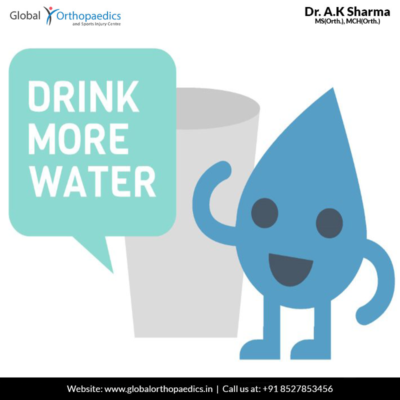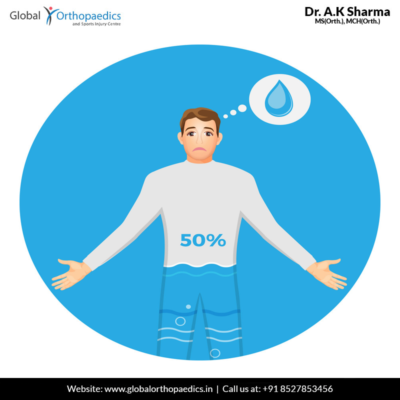How Dehydration Affects Your Muscles and Joints
- Cramps. Your body needs both water and electrolytes (sodium, potassium, magnesium, calcium, and chloride) to support normal muscle contractions. Once you sweat heavily during workouts, you lose both, causing cramps.
- Cartilage wear. Water and electrolytes are essential to delivering nutrients that help cartilage repair itself when it’s injured. If you stop drinking water, the wear and tear on your cartilage (especially your knees) outpace the body’s ability to get new cells. Injuries like cartilage tears and meniscus tears may result.
- Friction within the joints. Cartilage is formed of collagen, proteins, cells, synovia, and water — up to 80% water. This water and synovia cushion your bones once they bear weight or pressure. The meniscus, for instance, pads your knee and allows the leg bones to move smoothly past each other without grinding. Dehydration can deprive your cartilage of the water it must maintain this cushion, which may cause achy or “creaking” joints and osteoarthritis (OA).
We all got to stay hydrated to remain healthy. But if you’re active or athletic, hydration is even more important because you’re losing water to sweat. If you hope to avoid injury, replacing water and electrolytes must be a pillar of your sports training routine.
Recommended daily water intake
The recommended daily water intake for an adolescent or adult is eight 8-ounce glasses of water per day.
To maintain a correct fluid balance when exercising, you will need to drink more fluids than usual to replenish what you lose through sweat. Be prepared with a bottle or sports drink. Hydrate before, during, and after your workout.
Guidelines for hydration when exercising
- Before workout: Drink 20 ounces within two hours of exercising.
- During workout: Drink 4–8 ounces every 15–20 minutes.
- After workout: to exchange water you’ve lost through sweat, drink about 24 ounces for each pound of weight you’ve lost through sweat.
HYDRATING DRINKS
The best drink for avoiding dehydration is water. Water may be a sugar-free, calorie-free nutrient and is perfect permanently health.
However, sports drinks are often useful if you’ve lost tons of fluid and salt quickly (for example, running or playing sports for long periods in high heat and humidity). Keep in mind, electrolyte sports drinks contain sugar and sodium. For normal daily hydration, pure water may be a healthier choice.
If you do not just like the taste of tap or bottled water, you’ll make your own “spa water” reception by adding lemon, cucumber, or mint for flavor. You’ll also flavor water with slices of fresh fruit like apples, orange, or grapefruit.
Coconut water is an alternative choice. it’s rich in electrolytes and fewer sugary than sports drinks, but it does contain calories.
Tap, cold, or hot water are all fine, as long as you’re meeting your daily requirements.
HYDRATION AND THE ELDERLY
Staying hydrated is not just for athletes and young, active people.
Older people are particularly susceptible to dehydration. Medications like diuretics remove water from the body, resulting in faster dehydration.
However, living alone or entering a care facility can cause people to forget to drink enough fluids. Various physical or cognitive health issues also can cause reduced water intake.
No matter what your age, even though you’re not thirsty, confirm you’re drinking enough water to take care of healthiness per the rules listed above.
If you’ve got an elderly person in your life who isn’t drinking enough water, make arrangements to possess his or her fluid intake monitored.
Remember: eight 8-ounce glasses per day can make an enormous difference in maintaining health and preventing injury.
STAY HEALTHY THIS WINTERS
If you’re an adult athlete, a student-athlete, a runner, or have a history of injury, give your Orthopaedic a call. Global Orthopaedics and Sports Injury can assess your fitness, will talk to you about medicine options, and assist you stay active safely.





